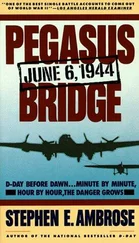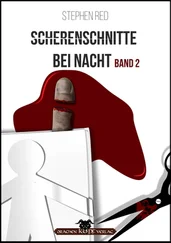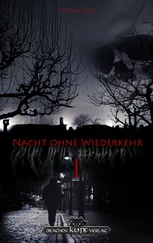Stephen Ambrose - Band of Brothers
Здесь есть возможность читать онлайн «Stephen Ambrose - Band of Brothers» весь текст электронной книги совершенно бесплатно (целиком полную версию без сокращений). В некоторых случаях можно слушать аудио, скачать через торрент в формате fb2 и присутствует краткое содержание. Жанр: История, на английском языке. Описание произведения, (предисловие) а так же отзывы посетителей доступны на портале библиотеки ЛибКат.
- Название:Band of Brothers
- Автор:
- Жанр:
- Год:неизвестен
- ISBN:нет данных
- Рейтинг книги:4.5 / 5. Голосов: 2
-
Избранное:Добавить в избранное
- Отзывы:
-
Ваша оценка:
- 100
- 1
- 2
- 3
- 4
- 5
Band of Brothers: краткое содержание, описание и аннотация
Предлагаем к чтению аннотацию, описание, краткое содержание или предисловие (зависит от того, что написал сам автор книги «Band of Brothers»). Если вы не нашли необходимую информацию о книге — напишите в комментариях, мы постараемся отыскать её.
Band of Brothers — читать онлайн бесплатно полную книгу (весь текст) целиком
Ниже представлен текст книги, разбитый по страницам. Система сохранения места последней прочитанной страницы, позволяет с удобством читать онлайн бесплатно книгу «Band of Brothers», без необходимости каждый раз заново искать на чём Вы остановились. Поставьте закладку, и сможете в любой момент перейти на страницу, на которой закончили чтение.
Интервал:
Закладка:
Stephen E. Ambrose
Band of Brothers
1 - 'WE WANTED THOSE WINGS'
*
CAMP TOCCOA
July-December 1942
The men of Easy Company, 506th Parachute Infantry Regiment, 101st Airborne Division, U.S. Army, came from different backgrounds, different parts of the country. They were farmers and coal miners, mountain men and sons of the Deep South. Some were desperately poor, others from the middle class. One came from Harvard, one from Yale, a couple from UCLA. Only one was from the Old Army, only a few came from the National Guard or Reserves. They were citizen soldiers.
They came together in the summer of 1942, by which time the Europeans had been at war for three years. By the late spring of 1944, they had become an elite company of airborne light infantry. Early on the morning of D-Day, in its first combat action, Easy captured and put out of action a German battery of four 105 mm cannon that were looking down on Utah Beach. The company led the way into Carentan, fought in Holland, held the perimeter at Bastogne, led the counteroffensive in the Battle of the Bulge, fought in the Rhineland campaign, and took Hitler's Eagle's Nest at Berchtesgaden. It had taken almost 150 percent casualties. At the peak of its effectiveness, in Holland in October 1944 and in the Ardennes in January 1945, it was as good a rifle company as there was in the world.
The job completed, the company disbanded, the men went home.
Each of the 140 men and seven officers who formed the original company followed a different route to its birthplace, Camp Toccoa, Georgia, but they had some things in common. They were young, born since the Great War. They were white, because the U.S. Army in World War II was segregated. With three exceptions, they were unmarried. Most had been hunters and athletes in high school.
They were special in their values. They put a premium on physical well being, hierarchical authority, and being part of an elite unit. They were idealists, eager to merge themselves into a group fighting for a cause, actively seeking an outfit with which they could identify, join, be a part of, relate to as a family.
They volunteered for the paratroopers, they said, for the thrill, the honor, and the $50 (for enlisted men) or $100 (for officers) monthly bonus paratroopers received. But they really volunteered to jump out of airplanes for two profound, personal reasons. First, in Robert Rader's words, "The desire to be better than the other guy took hold." Each man in his own way had gone through what Richard Winters experienced: a realization that doing his best was a better way of getting through the Army than hanging around with the sad excuses for soldiers they met in the recruiting depots or basic training. They wanted to make their Army time positive, a learning and maturing and challenging experience.
Second, they knew they were going into combat, and they did not want to go in with poorly trained, poorly conditioned, poorly motivated draftees on either side of them. As to choosing between being a paratrooper spearheading the offensive and an ordinary infantryman who could not trust the guy next to him, they decided the greater risk was with the infantry. When the shooting started, they wanted to look up to the guy beside them, not down.
They had been kicked around by the Depression, had the scars to show for it. They had grown up, many of them, without enough to eat, with holes in the soles of their shoes, with ragged sweaters and no car and often not a radio. Their educations had been cut short, either by the Depression or by the war.
"Yet, with this background, I had and still have a great love for my country," Harry Welsh declared forty-eight years later.
Whatever their legitimate complaints about how life had treated them, they had not soured on it or on their country.
They came out of the Depression with many other positive features. They were self-reliant, accustomed to hard work and to taking orders. Through sports or hunting or both, they had gained a sense of self-worth and self-confidence.
They knew they were going into great danger. They knew they would be doing more than their part. They resented having to sacrifice years of their youth to a war they never made. They wanted to throw baseballs, not grenades, shoot a .22 rifle, not an M-l. But having been caught up in the war, they decided to be as positive as possible in their Army careers.
Not that they knew much about airborne, except that it was new and all volunteer. They had been told that the physical training was tougher than anything they had ever seen, or that any other unit in the Army would undergo, but these young lions were eager for that. They expected that, when they were finished with their training, they would be bigger, stronger, tougher than when they started, and they would have gone through the training with the guys who would be fighting beside them.
"The Depression was over," Carwood Lipton recalled of that summer of 1942, "and I was beginning a new life that would change me profoundly." It would all of them.
First Lt. Herbert Sobel of Chicago was the initial member of E Company, and its C.O. His executive officer (X.O.) was 2nd Lt. Clarence Hester from northern California. Sobel was Jewish, urban, with a commission from the National Guard. Hester had started as a private, then earned his commission from Officer Candidate's School (OCS). Most of the platoon and assistant platoon leaders were newly commissioned graduates of OCS, including 2nd Lts. Dick Winters from Pennsylvania, Walter Moore from California's race tracks, and Lewis Nixon from New York City and Yale. S. L. Matheson was an ROTC graduate from UCLA. At twenty-eight years of age, Sobel was the old man in the group; the others were twenty-four or younger.
The company, along with Dog, Fox, and Battalion HQ Companies, made up the 2nd Battalion of the 506th PIR. The battalion commander was Maj. Robert Strayer, a thirty-year-old reserve officer. The regimental commander was Col. Robert Sink, a 1927 West Point graduate. The 506th was an experimental outfit, the first parachute infantry regiment in which the men would take their basic training and their jump training together, as a unit. It would be a year before it was attached to the 101st Airborne, the Screaming Eagles. The officers were as new to this paratrooping business as the men; they were teachers who sometimes were not much more than one day ahead of the class.
The original NCOs were Old Army. "We looked up to them," Pvt. Walter Gordon of Mississippi remembered, "as almost like gods because they had their wings, they were qualified jumpers. But, hell, if they knew how to do an about-face, they were ahead of us, we were raw recruits. Later, looking back, we regarded them with scorn. They couldn't measure up to our own people who moved up to corporals and sergeants."
The first privates in Easy were Frank Perconte, Herman Hansen, Wayne Sisk, and Carwood Lipton. Within a few days of its formation, Easy had a full complement of 132 men and eight officers. It was divided into three platoons and a headquarters section. There were three twelve-man rifle squads plus a six-man mortar team squad to a platoon. A light infantry outfit, Easy had one machine-gun to each of the rifle squads, and a 60 mm mortar in each mortar team.
Few of the original members of Easy made it through Toccoa. "Officers would come and go," Winters remarked. "You would take one look at them and know they wouldn't make it. Some of those guys were just a bowl of butter. They were so awkward they didn't know how to fall." This was typical of the men trying for the 506th PIR; it took 500 officer volunteers to produce the 148 who made it through Toccoa, and 5,300 enlisted volunteers to get 1,800 graduates.
Читать дальшеИнтервал:
Закладка:
Похожие книги на «Band of Brothers»
Представляем Вашему вниманию похожие книги на «Band of Brothers» списком для выбора. Мы отобрали схожую по названию и смыслу литературу в надежде предоставить читателям больше вариантов отыскать новые, интересные, ещё непрочитанные произведения.
Обсуждение, отзывы о книге «Band of Brothers» и просто собственные мнения читателей. Оставьте ваши комментарии, напишите, что Вы думаете о произведении, его смысле или главных героях. Укажите что конкретно понравилось, а что нет, и почему Вы так считаете.



![Stephen Ambrose - Citizen Soldiers [Condensed]](/books/346737/stephen-ambrose-citizen-soldiers-condensed-thumb.webp)
![Stephan Orth - Behind Putin's Curtain - Friendships and Misadventures Inside Russia [aka Couchsurfing in Russia]](/books/415210/stephan-orth-behind-putin-s-curtain-friendships-a-thumb.webp)





